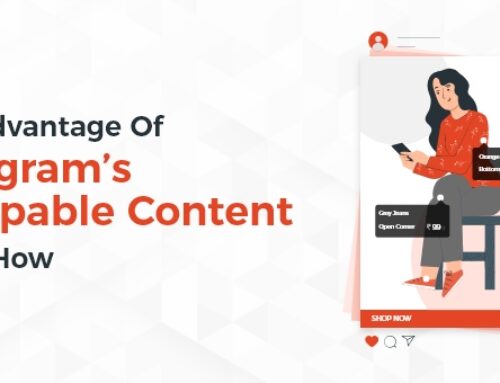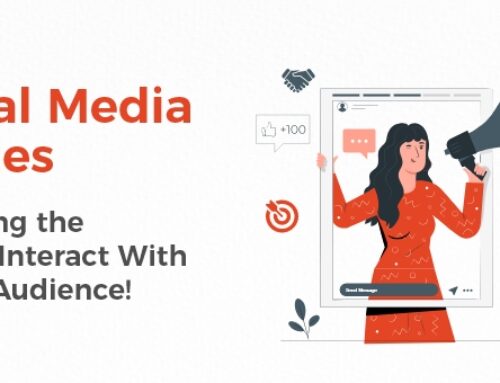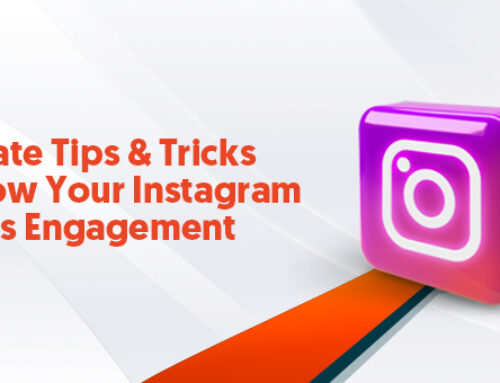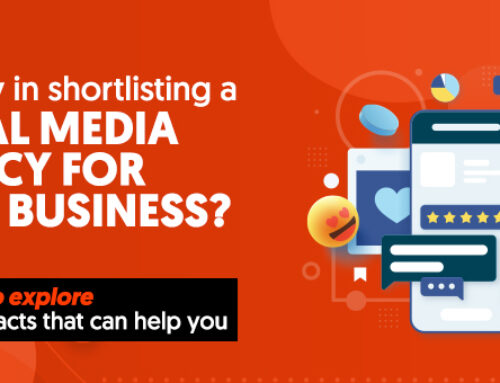A GUIDE TO MASTERING THE SOCIAL MEDIA ALGORITHM IN 2023

The social media algorithm mainly refers to a set of rules and processes that social media platforms use to determine the content that appears on users’ feeds. These algorithms curate and prioritise the content that each user sees based on various factors to provide a personalised and engaging experience. Social media platforms utilise algorithms to sift through the massive amount of content shared and decide which posts, stories, videos, and other forms of content are most relevant and interesting to each user. In 2023, understand how social media algorithms work and impact your social media strategy. This article delves into the workings of social media algorithms and provides actionable tips to enhance your online presence.
How do algorithms work on social media?
While the exact workings of social media algorithms can vary between platforms and change over time, here’s a general overview of how they work:
- Data collection
Social media platforms collect data such as user interactions, posts, likes, comments, shares, clicks, and more. - User profiling
social media algorithms create user profiles based on the collected data. It helps to understand the user’s preferences, interests, and behaviour patterns. - Relevance
The algorithm assesses how relevant content is to the user’s interests and past interactions. - Engagement
Content that has received higher engagement, such as likes, comments, and shares, is often given priority as the platform assumes it’s more interesting to users. - Recency
Fresh content is often prioritised over older content to ensure users see timely updates. - User behaviour
The algorithm considers the user’s past behaviour, such as the type of content they typically engage with and the time they spend on different posts. - Content-type
The algorithm might promote certain types of content (e.g., videos, images, articles) depending on the user’s preferences and the platform’s goals. - Ad integration
Social media platforms also use algorithms to display ads to users. These algorithms consider user demographics, behaviour, and advertisers’ targeting criteria to deliver relevant advertisements.
How to increase your social media engagement?
Mastering social media algorithms in 2023 requires understanding the fundamental principles of algorithm behaviour, staying updated on platform changes, and employing strategies for engagement and content creation. Here’s a roadmap to help you navigate and excel in understanding social media algorithms:
– Understand Algorithm Basics
Start by studying the algorithmic principles of major social media platforms like Facebook, Instagram, Twitter, and LinkedIn. You will note that each platform has its own algorithm and it prioritises content based on user interactions, relevancy, and engagement patterns. Learn about key metrics that algorithms consider, such as likes, comments, shares, clicks, and time spent on content. Algorithms use these signals to determine content visibility.
– Stay Updated
Algorithms of social media evolve frequently, so it’s crucial to stay updated on algorithm changes and updates by following official announcements, blogs, and reputable industry sources. Platforms often release guidelines and insights to help content creators adapt.
– Audience Analysis
Understand your target audience’s preferences, behaviours, and interests. Tailor your content to resonate with your specific audience to increase engagement and visibility.
– Content Quality
Create high-quality, valuable, and engaging content. The algorithm of social media prioritises content that users find informative, entertaining, or helpful. Utilise various content formats such as videos, images, stories, and live streams to diversify your content strategy.
– Consistency
Consistency in posting helps establish a reliable presence and maintains audience engagement. Develop a content calendar and posting schedule that aligns with your audience’s active times.
– Engagement and Interaction
Respond promptly to comments, messages, and interactions on your posts. High engagement rates signal to algorithms that your content is relevant and valuable.
– Utilise Stories and Reels
Many platforms have features like Stories (Instagram, Facebook) and Reels (Instagram, TikTok) that receive special attention from algorithms. Use these features to create engaging short-form content.
– Utilise Analytics
Make use of platform analytics to monitor the performance of your content. Identify trends, peak engagement times, and content types that resonate most with your audience.
Social media data mining algorithms are also used to infer data. It refers to computational techniques and methods used to extract, analyse, and interpret valuable information from the vast data generated on social media platforms.
– Timing Matters
Post when your target audience is most active. Use insights and analytics tools to determine peak engagement times. Experiment with posting at different times and days to find the optimal schedule.
– User-Generated Content (UGC)
Encourage your followers to create and share content related to your brand.
Repost UGC with proper credit, showcasing your community and building a sense of belonging.
Incorporate
– Interactive Content
Use interactive features like polls, quizzes, and Q&A sessions to involve your audience in your content. Interactive content fosters engagement and feedback.
– Analyse and Adapt
Regularly analyse your engagement metrics (likes, comments, shares, etc.) to identify what’s working and what’s not. Adjust your content strategy based on these insights.
Remember that social media algorithm prioritises content that generates genuine interactions and meaningful engagement. Focus on building a community, fostering connections, and adding value to the lives of your followers. Over time, as you implement these strategies and adapt to changes, you can master the social media algorithm and see a positive impact on your engagement levels












